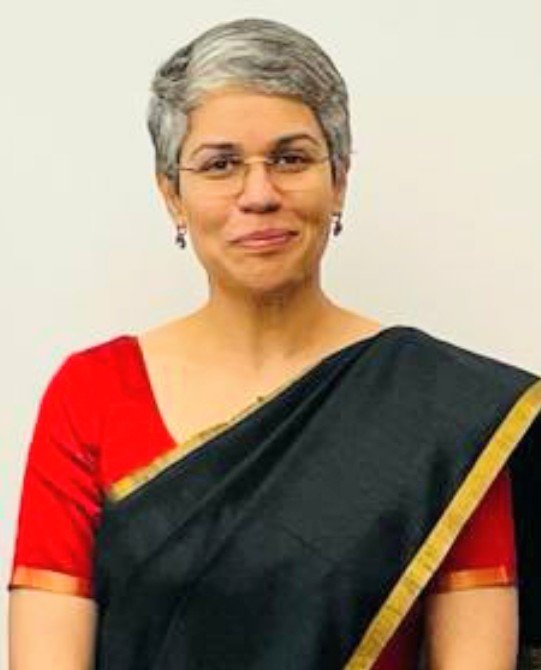New Mental Healthcare Bill 2016 awaiting Presidential assent
The new Mental Healthcare Bill 2016, which has been approved Parliament and is awaiting the President’s assent should be implemented in letter and spirit to ensure mental healthcare and services to persons with mental illness. This was stated by Mr. Lav Aggarwal, Joint Secretary, Ministry of Health and Family Welfare.
Mr. Aggarwal said that a multi-pronged approach was needed to identify and treat clinical depression and mental disorder as it required overall life course correction. There was a need to integrate mental health services with regular healthcare services as it would allow reduction in isolation of patients afflicted with such disorders. Furthermore, mass awareness campaigns were essential to remove the social stigma attached to it and community based approach should be adopted.
The World Health Organization (WHO) has recognised mental health as being a primary concern for well-being of individuals and instated depression as the theme for World Health Day this year. Depression has become an increasingly fatal disease accounting for the highest number of disabilities that occur after cardiac illnesses. The presence of an undiagnosed depression is known to be the cause of 90% suicides that happen across the world. Between 1990 and 2013 the number of people suffering from depression and anxiety disorders increased by nearly 50%. Mental illnesses affected 300 million of the global population in 2015. WHO statistics place the prevalence of depression in South East Asian countries at 86 million. Mr. Sumant Narain, Director, Health, NITI Aayog, said that today the ecosystem was far more conducive to recognizing depression and partnerships were needed between public and private sectors to deal with the illness. There has been a behavioral change in the society but sustained and systematic efforts were required to circumvent clinical depression. Although there were known and effective treatment for depression available but a very small proportion of the affected population in the world receive such treatment.
He said that in addition to limited availability of resources and trained health-care providers, the social stigma attached to mental disorders was a major challenge. Hence it was imperative for people to learn and understand depression. It will not only benefit the patient but also the caregivers and family members. With the passage of the revised Mental Health Bill 2016, it is now time to implement it with the support of all stakeholders.
Prof. Mathew Varghese, Professor of Psychiatry, NIMHANS, said awareness campaigns should clearly spell out that depression was an illness that can be treated and depression relating to physical illness was prevalent. Also, depression as a disorder could be responsible for disability, morbidity and mortality. He added that each available medium must focus on bringing to the fore these messages.
Prof. Varghese said that the way ahead should be to organize universal prevention programmes, targeted interventions for people at high risks and teaching and training general physicians and specialists to screen and identify patients with clinical depression at an early stage and treatment should be evidence-based. In his concluding remarks, Mr. Daljit Singh, President, Fortis Healthcare Ltd., said that capacity building wasrequired in treating mental disorders and technology could be of great assistance in this regard. Recognition of depression as a disease in India was a positive transformation in society and with the government’s new Mental Health Bill was a step in the right direction.
Dr Samir Parikh, Consultant Psychiatrist & Director, Department of Mental Health and Behavioral Sciences, Fortis Healthcare, said that there was a need for a national policy on suicide prevention and creation of awareness about depression as a recent survey has shown that 60 per cent of the people consider it a rare disease while in reality it was one of the major causes for suicides.
Dr. Parikh said that role models especially of youth should speak on the issue as it is bound to be more impactful. Everywhere people need to talk about mental health for recognizing it and treating it in time. He added that there was not adequate number of doctors to treat depression in the county and the majority of existing doctors were in the private sector. Therefore the need was to have accessible and affordable psychiatrists in the outskirts of the country. Technology should be leveraged to treat patients in the periphery.
Dr. Parikh said that the private sector needed to play a proactive role and with collaborative efforts from the industry, private and public healthcare providers, government and media, a program was needed to increase awareness and accessibility of expert help to incidence of depression in the country.
Dr Narottam Puri, Advisor – FICCI Health Services, Board Member & Former Chairman, NABH, said that in India one in every five person was suffering from depression and still it remained under-diagnosed, under-reported and under-treated. The stigma attached with depression has dissuaded people to talk about it openly and with lack of awareness it was often equated with madness.
Dr Puri said that suicides caused by depression were highest among medical professionals and the primary reason was that doctors were usually surrounded by patients with depression and there was easy access to mood elevating drugs. He added that India lacked medical practitioners in the field besides the medical curriculum did not give due weightage to identification and treatment of depression.
Dr Puri said that women suffer from depression more than men and while it was easier to treat a stroke, understanding the emotive brain functions still remained a mystery. Therefore, it was necessary to empower medical students through curriculum and train general physicians enabling them to recognize depression.
Ms. Shobha Mishra Ghosh, Assistant Secretary General, FICCI, said that such collaborative initiatives which bring together different stakeholders from the health fraternity and various facets of society can help initiate a concentrated and comprehensive approach to reduce the morbidity and disability due to depression in the country. She also announced the launch of a series of Webinars in association with Fortis on ‘Depression and Well-being’ for corporate employees. These free of cost webinars will be conducted by experts from the mental health team of Fortis Healthcare.





